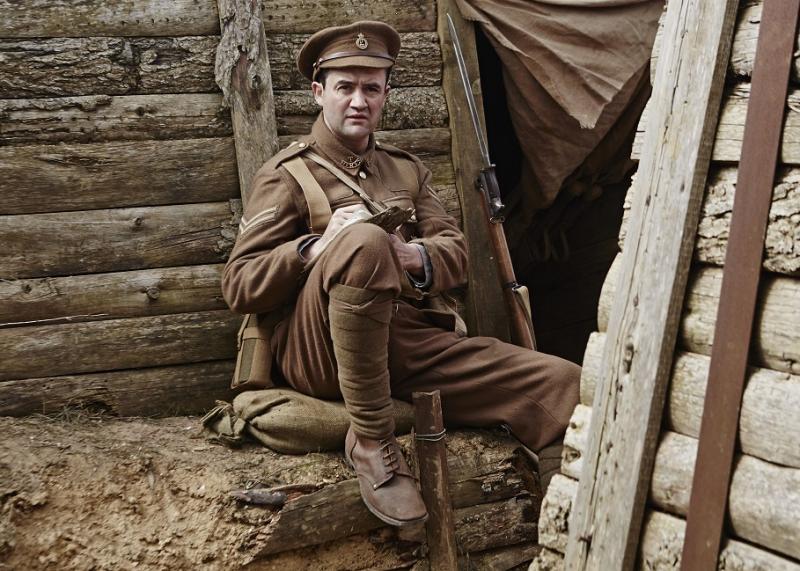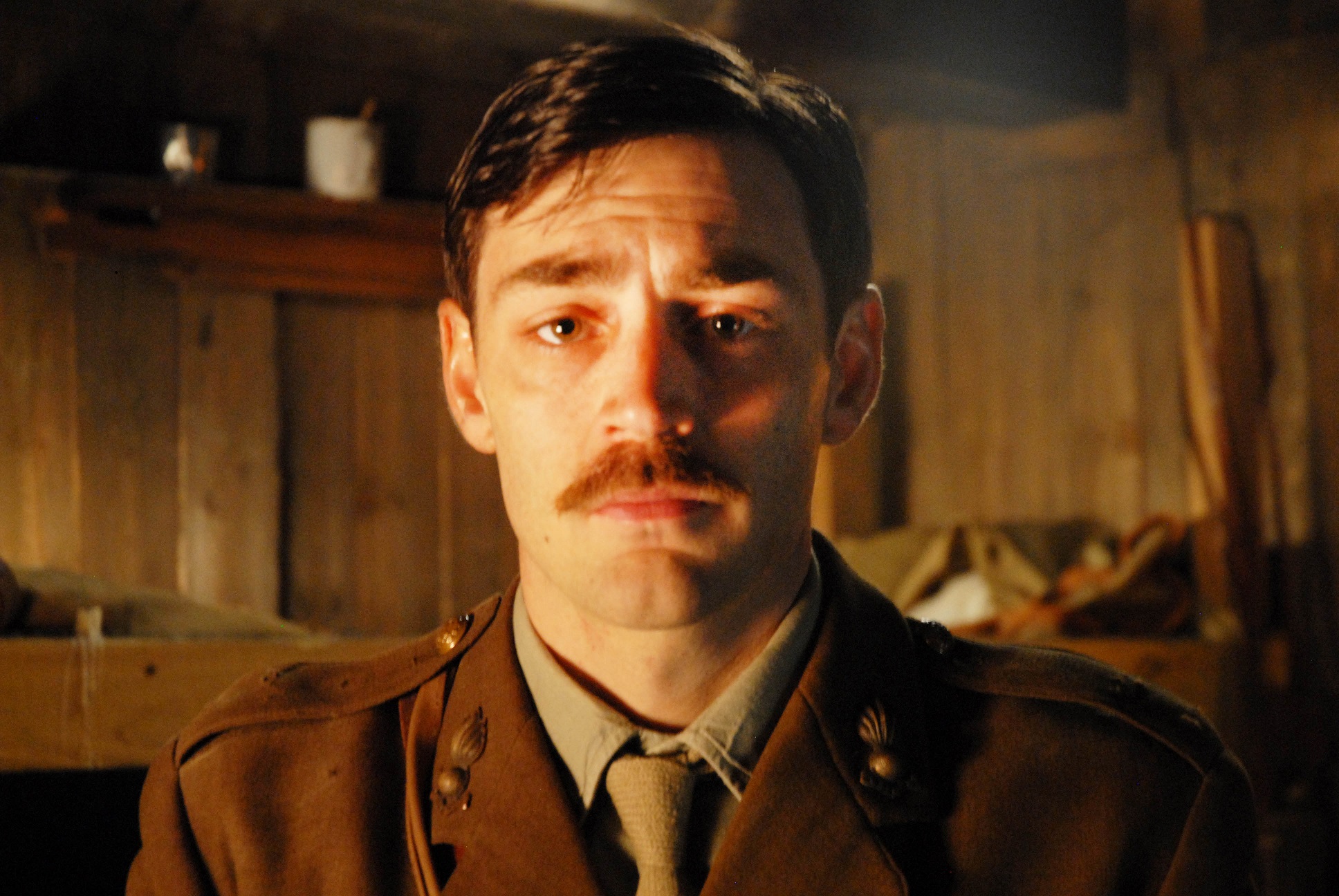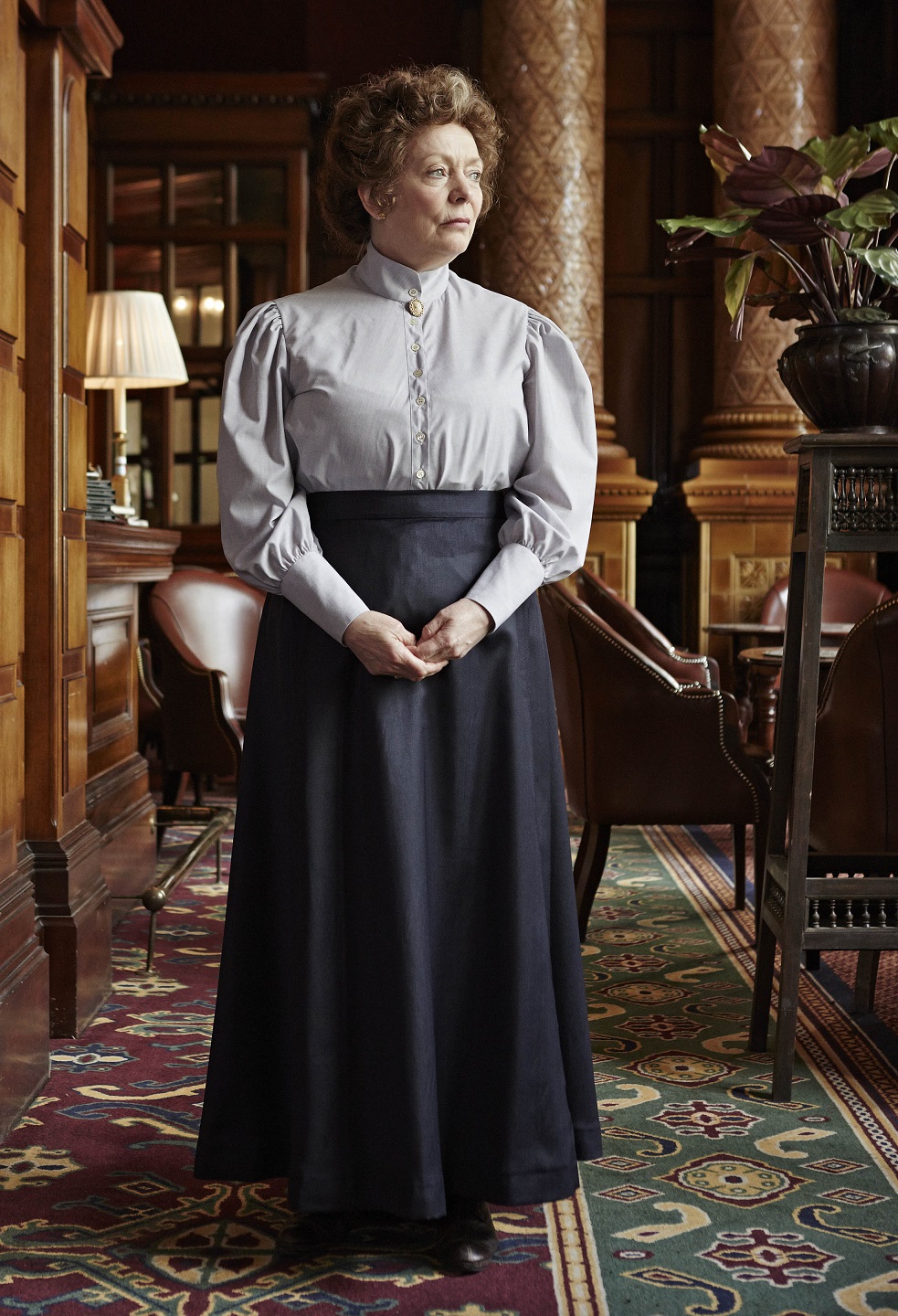The Great War: The People's Story, ITV | reviews, news & interviews
The Great War: The People's Story, ITV
The Great War: The People's Story, ITV
More first-person war testimonies from front line and home front

The best thing about The Great War: The People’s Story is the variety of intonations and accents that reveal the characters of the individuals whose letters, memoirs and diaries are collected in the programme. Last week’s opening episode caught all the gung-ho excitement that followed the declaration of war as men streamed along to join up. This second one brought us something darker, as we moved forward to 1915, with the “machine of death” already reaping its toll.
The People’s Story will run to four episodes, each of which concentrates on four individuals whose stories last as long as their written testimonies do (other characters, named but with only a line of two to say and not fleshed out further, appear intermittently, occasionally distractingly). Dorothy Lawrence, the intrepid would-be war correspondent who made her own way to the lines before being apprehended by intelligence as a suspected spy, departed with episode one, as did James Butlin, shell-shocked and invalided out in 1916.
It left you wondering whether it would have spoken more powerfully on radio rather than television
That left the chipper cockney Sgt Reg Evans (played by Daniel Mays, main picture) still in play, writing home to his mother, although a terrible face wound has brought him back for restorative plastic surgery in Blighty, while the pukkah Lt. Alan Lloyd (Matthew McNulty, pictured below right) tells news of Ypres and then the Somme to his beloved wife in Birmingham. Their letters home are as much to reassure those they are writing to, as to tell the realities, and their intimate humour is what really makes them affecting. “I’m afraid you’ll have to prepare yourself to receive a rather uglier duckling than before,” Reg writes with understatement as his complex operations continue, while Alan speaks in an intimate child language of “hubbins” and “little wife”, the optimism he communicates in reverse proportion to his real circumstances in the trenches. Only one of them survives the episode.
T he People’s Story has overlapped with the similarly constructed Great War Diaries on BBC Two, the third and final episode of which went out on Saturday. The initial hesitation I had about Great War Diaries was its complexity, though it acquired a cumulative heft as it proceeded (and must have had considerably more in the longer original European version). The hesitation about the ITV programme concerns its simplicity, though that hardly seems the right word. The testimonies here, all drawn from the Imperial War Museum, weren’t really dramatized, in the way that Great War Diaries were (and that series’ budget made for an excellent job, spanning the languages of the 25 international broadcasters involved in the latter project).
he People’s Story has overlapped with the similarly constructed Great War Diaries on BBC Two, the third and final episode of which went out on Saturday. The initial hesitation I had about Great War Diaries was its complexity, though it acquired a cumulative heft as it proceeded (and must have had considerably more in the longer original European version). The hesitation about the ITV programme concerns its simplicity, though that hardly seems the right word. The testimonies here, all drawn from the Imperial War Museum, weren’t really dramatized, in the way that Great War Diaries were (and that series’ budget made for an excellent job, spanning the languages of the 25 international broadcasters involved in the latter project).
In The People’s Story that meant straight monologues to camera, interspersed with the expected archive material. (More qualified commentators will be able to judge whether the archive used matched the stories concerned: we can only hope that, given the IWM’s involvement, it did, rather than just being presented as the “wallpaper” war material often found in such projects). On one hand, that very simplicity allowed these powerful testimonies to speak for themselves, and powerful they were; on the other, though, it left you wondering whether they would have spoken even more powerfully on radio rather than television.
 The People’s Story was as much about the women on the home front as the men at the lines. Dorothy’s story from the first episode was one of extraordinary determination and a genuine archive discovery, albeit one that ended tragically too (she had a nervous breakdown after the war, and would be confined in an asylum for more than 40 years). The new presences in episode two were society cook Hallie Miles (Alison Steadman, pictured left) and suffragette Kate Frye (Romola Garai), the latter following the fate of her soldier husband (“tears trickling into my boiled egg at supper”).
The People’s Story was as much about the women on the home front as the men at the lines. Dorothy’s story from the first episode was one of extraordinary determination and a genuine archive discovery, albeit one that ended tragically too (she had a nervous breakdown after the war, and would be confined in an asylum for more than 40 years). The new presences in episode two were society cook Hallie Miles (Alison Steadman, pictured left) and suffragette Kate Frye (Romola Garai), the latter following the fate of her soldier husband (“tears trickling into my boiled egg at supper”).
The series’ premise that the “war would touch everyone” made these perspectives from the home front more interesting, revealing much that is less well-known than the experiences on the front line. Perhaps director Paul Copeland will achieve more power as The People’s Story proceeds, but some of the rhythms here didn't seem quite right. Olivia Colman’s narration sounded at times disconcertingly like a history lecture.
rating
Explore topics
Share this article
Add comment
The future of Arts Journalism
You can stop theartsdesk.com closing!
We urgently need financing to survive. Our fundraising drive has thus far raised £49,000 but we need to reach £100,000 or we will be forced to close. Please contribute here: https://gofund.me/c3f6033d
And if you can forward this information to anyone who might assist, we’d be grateful.

Subscribe to theartsdesk.com
Thank you for continuing to read our work on theartsdesk.com. For unlimited access to every article in its entirety, including our archive of more than 15,000 pieces, we're asking for £5 per month or £40 per year. We feel it's a very good deal, and hope you do too.
To take a subscription now simply click here.
And if you're looking for that extra gift for a friend or family member, why not treat them to a theartsdesk.com gift subscription?
more TV
 Murder Before Evensong, Acorn TV review - death comes to the picturesque village of Champton
The Rev Richard Coles's sleuthing cleric hits the screen
Murder Before Evensong, Acorn TV review - death comes to the picturesque village of Champton
The Rev Richard Coles's sleuthing cleric hits the screen
 Black Rabbit, Netflix review - grime and punishment in New York City
Jude Law and Jason Bateman tread the thin line between love and hate
Black Rabbit, Netflix review - grime and punishment in New York City
Jude Law and Jason Bateman tread the thin line between love and hate
 The Hack, ITV review - plodding anatomy of twin UK scandals
Jack Thorne's skill can't disguise the bagginess of his double-headed material
The Hack, ITV review - plodding anatomy of twin UK scandals
Jack Thorne's skill can't disguise the bagginess of his double-headed material
 Slow Horses, Series 5, Apple TV+ review - terror, trauma and impeccable comic timing
Jackson Lamb's band of MI5 misfits continues to fascinate and amuse
Slow Horses, Series 5, Apple TV+ review - terror, trauma and impeccable comic timing
Jackson Lamb's band of MI5 misfits continues to fascinate and amuse
 Coldwater, ITV1 review - horror and black comedy in the Highlands
Superb cast lights up David Ireland's cunning thriller
Coldwater, ITV1 review - horror and black comedy in the Highlands
Superb cast lights up David Ireland's cunning thriller
 Blu-ray: The Sweeney - Series One
Influential and entertaining 1970s police drama, handsomely restored
Blu-ray: The Sweeney - Series One
Influential and entertaining 1970s police drama, handsomely restored
 I Fought the Law, ITVX review - how an 800-year-old law was challenged and changed
Sheridan Smith's raw performance dominates ITV's new docudrama about injustice
I Fought the Law, ITVX review - how an 800-year-old law was challenged and changed
Sheridan Smith's raw performance dominates ITV's new docudrama about injustice
 The Paper, Sky Max review - a spinoff of the US Office worth waiting 20 years for
Perfectly judged recycling of the original's key elements, with a star turn at its heart
The Paper, Sky Max review - a spinoff of the US Office worth waiting 20 years for
Perfectly judged recycling of the original's key elements, with a star turn at its heart
 The Guest, BBC One review - be careful what you wish for
A terrific Eve Myles stars in addictive Welsh mystery
The Guest, BBC One review - be careful what you wish for
A terrific Eve Myles stars in addictive Welsh mystery
 theartsdesk Q&A: Suranne Jones on 'Hostage', power pants and politics
The star and producer talks about taking on the role of Prime Minister, wearing high heels and living in the public eye
theartsdesk Q&A: Suranne Jones on 'Hostage', power pants and politics
The star and producer talks about taking on the role of Prime Minister, wearing high heels and living in the public eye
 King & Conqueror, BBC One review - not many kicks in 1066
Turgid medieval drama leaves viewers in the dark
King & Conqueror, BBC One review - not many kicks in 1066
Turgid medieval drama leaves viewers in the dark
 Hostage, Netflix review - entente not-too-cordiale
Suranne Jones and Julie Delpy cross swords in confused political drama
Hostage, Netflix review - entente not-too-cordiale
Suranne Jones and Julie Delpy cross swords in confused political drama

Comments
Wow, what amazing T.V. Four